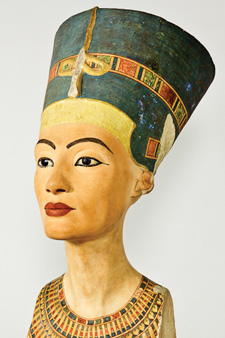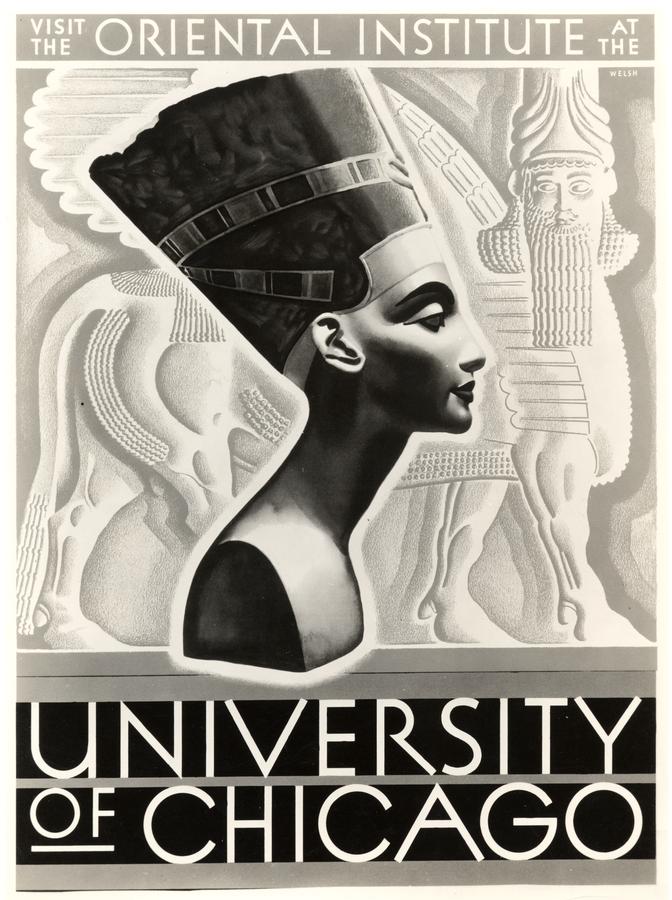The AIA today reports the death on July 28 of Eleanor Guralnick.
In recent years she had been working on the Khorsabad Relief Project at the Oriental Institute.
Gil Stein, a leading scholar of ancient Mesopotamia, has been reappointed for a third five-year term as director of the Oriental Institute, a position he has held since joining UChicago in 2002.
“The Oriental Institute serves as a nexus for research on campus on the ancient Near East, with an extraordinary collection of objects recovered during OI excavations,” wrote Provost Thomas Rosenbaum in a message to faculty. “Under Gil’s leadership, the OI has implemented the first stage of the integrated Database, a long-term project to connect the Oriental Institute’s major archives including hundreds of thousands of objects, images and data records into a single searchable digital resource, and established the Public Education Department with a broad mission of outreach to the University community, elementary and secondary school students, and the public.”
 Gil Stein
Gil Stein
The U.S. State Department recently chose the Oriental Institute to help inventory collections at the National Museum of Afghanistan (Kabul) and develop a bilingual English-Dari database of the museum’s holdings, Rosenbaum added.
Over the past five years, the Oriental Institute has made major strides in both archaeological and text-based scholarship. The Chicago Assyrian Dictionary has been completed after 90 years of work, and the Institute is now developing a new project to explore and document the early development of writing systems in Mesopotamia during the third millennium B.C.
The Persepolis Fortification Archive project and the Epigraphic Survey are using advanced digital technology to document crucial written records of the Persian Empire and ancient Egypt. In the last five years the Oriental Institute has dramatically increased the scope of its archaeological research, initiating four new excavations in Egypt (Edfu), Syria (Tell Zeidan), Israel (Marj Rabba in the Galilee) and the first joint American-Palestinian excavations in the West Bank at Khirbet al-Mafjar (early Islamic Jericho)
“The Oriental Institute is a uniquely valuable resource for scholarship and for the University of Chicago. I deeply appreciate being given the opportunity to contribute to the ongoing work of strengthening the Institute and building its research capacity for the future,” Stein said.
He said his top two priorities are to expand the scope of Oriental Institute research, and to secure the resources to build a solid foundation in people, programs and infrastructure. “These are the crucial building blocks to maintain our position as one of the world’s leading centers of innovation and discovery in studying the civilizations of the ancient Middle East,” Stein said.
He noted that the region is sometimes unstable politically. “By ensuring the critical mass of scholarly expertise and resources at the Oriental Institute, we will be able to move rapidly and flexibly take advantage of these new research opportunities when they do arise — especially in key regions such as Iraq and Iran,” Stein added.
A professor in Near Eastern Languages and Civilizations, Stein has been conducting fieldwork in Syria at Tell Zeidan, where he is investigating the earliest precursors of Mesopotamian urbanism in the Ubaid period — ca. 5300 B.C. He also has worked in Turkey, where he has overseen important excavations at Hacinebi, a 5,500-year-old Mesopotamian colony in the Euphrates River valley of southeast Turkey that is part of the world's first-known colonial system.
Stein is the author of Rethinking World Systems: Diasporas, Colonies and Interaction in Uruk Mesopotamia, edited The Archaeology of Colonial Encounters and The Uruk Expansion: Northern Perspectives from Hacinebi, Hassek Höyük and Gawra, and co-edited (with Mitchell Rothman) Chiefdoms and Early States in the Near East: The Organizational Dynamics of Complexity. He has been a National Science Foundation graduate fellow, a Fulbright scholar in Turkey, a resident scholar at the School of American Research, and has held a Howard Fellowship from Brown University.
Prior to joining UChicago, he was a professor of anthropology at Northwestern University. He received his bachelor’s in archaeology from Yale University (1978) and his PhD in anthropology from the University of Pennsylvania (1988).
 A
crumbling piece of plaster excavated from northern Iraq, showing the
shadowy outline of three standing figures, metamorphoses into a portrait
of Assyrian King Sargon II communing with a deity. That scene is then
incorporated into an artist’s imagined replication of an intricate wall
painting. In the process, the original object is transformed from rubble
to living witness, and what began as a shard of a lost culture is
elaborated into a rich narrative of a knowable past.
A
crumbling piece of plaster excavated from northern Iraq, showing the
shadowy outline of three standing figures, metamorphoses into a portrait
of Assyrian King Sargon II communing with a deity. That scene is then
incorporated into an artist’s imagined replication of an intricate wall
painting. In the process, the original object is transformed from rubble
to living witness, and what began as a shard of a lost culture is
elaborated into a rich narrative of a knowable past.



 The
Dance Council is a newly created co-curricular program with Theater and
Performance Studies, involving more then 300 students, 7 productions
annually, with a sweeping range of forms from
The
Dance Council is a newly created co-curricular program with Theater and
Performance Studies, involving more then 300 students, 7 productions
annually, with a sweeping range of forms from 







 Stumble It!
Stumble It!

